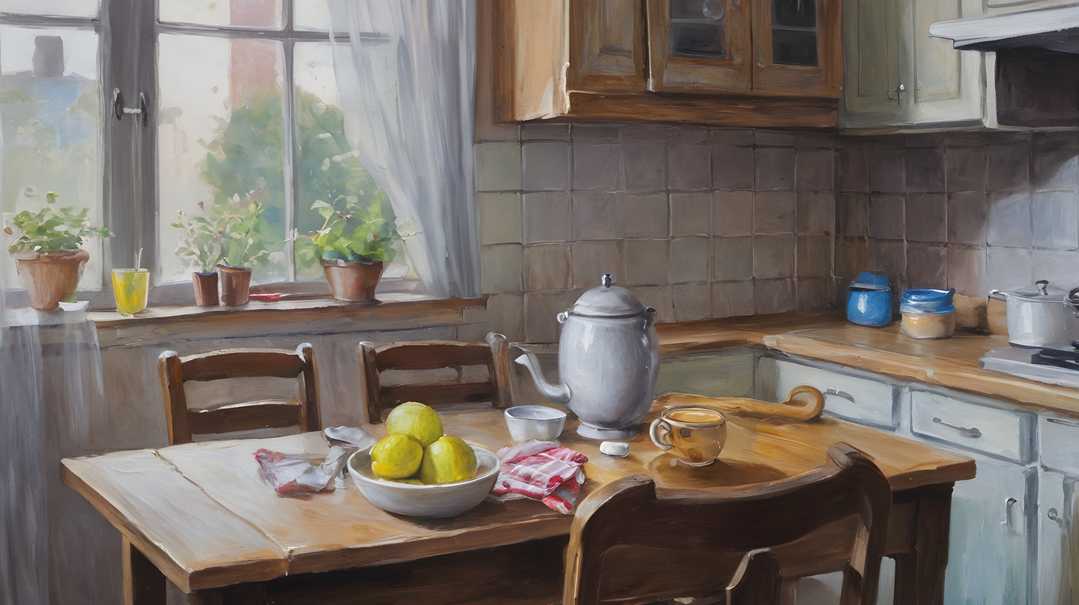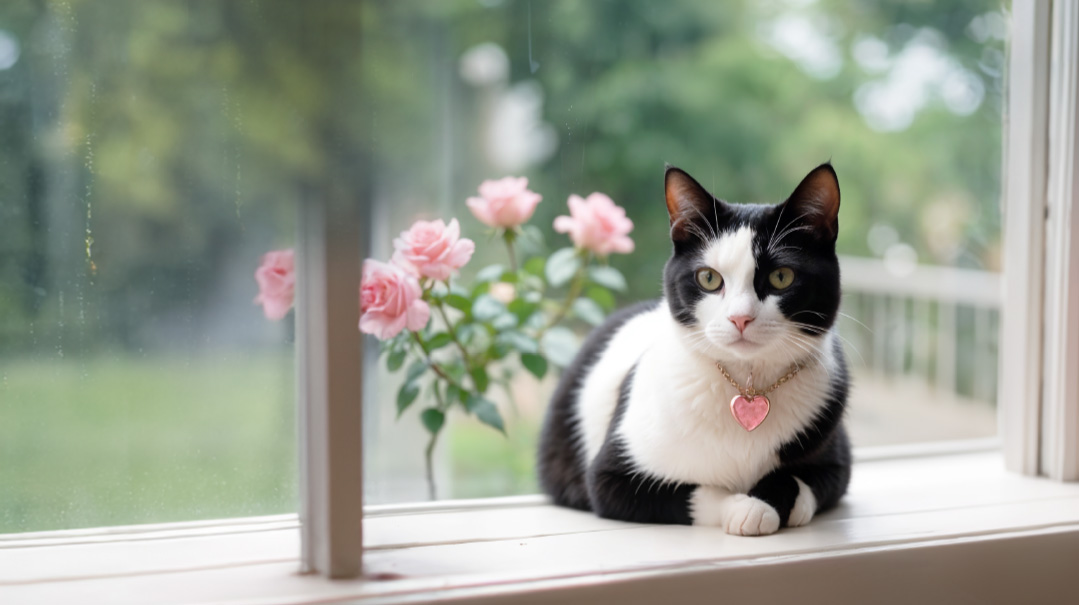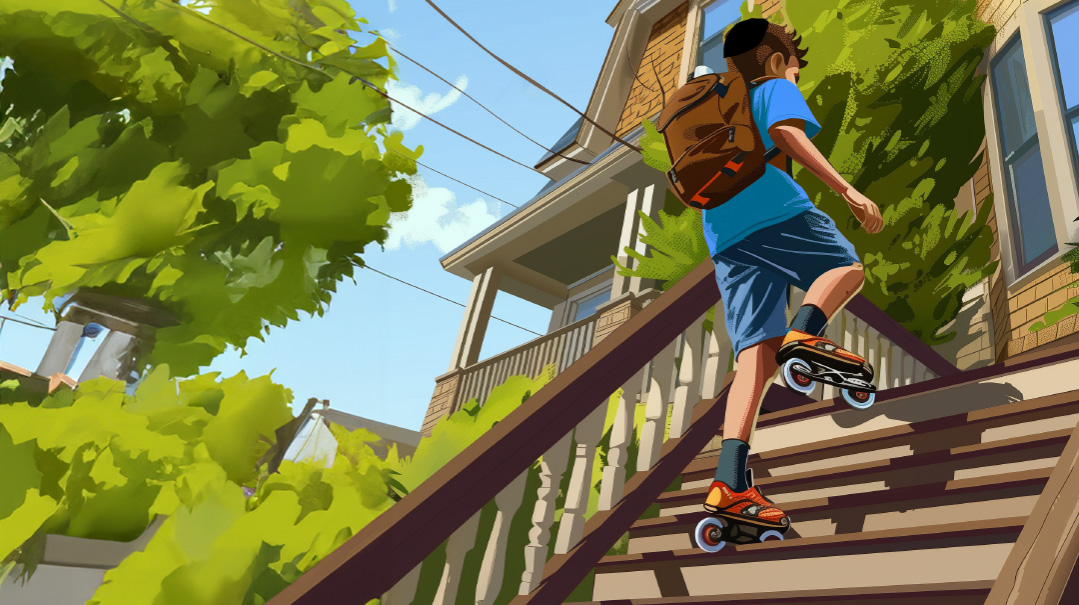Tante Ruchel
| January 30, 2024The memory of dear old Ruchel would forever remain, even when we were back at home in dull, drizzly London

W
hen I was young, my family didn’t travel to Israel too often. But when we did, there were three mandatory items on our to-do list. One, head to the Kosel. Two, take the bus to Kever Rochel. And three, visit Ruchel.
Ruchel was my great-grandmother’s cousin through marriage. Born and raised in Batei Ungarin in the 1930s and 40s, she was your quintessential Yerushalmi meidel. She plaited her hair every morning into two tight braids, spoke Yerushalmi Yiddish, and was acquainted with every stone passageway in the vicinity.
Her family lived in extreme poverty. A single orange was a cause for excitement, and every child would await to receive a segment with wide-eyed anticipation. Ruchel’s father, originally from Hungary, died of starvation when she was a young girl, and she and the rest of her siblings were raised single-handedly by their blind mother. Their apartment was pitifully small and crowded, food was in scant supply, and clothes were passed from child to child until they were falling apart.
But they were happy.
Ruchel married Berel Waller in the 1950s. Berel was an orphan who also hailed from Hungary and had fled the inferno that engulfed Europe during World War II.
Husband and wife were from two different worlds; one was a bright and balabatishe European, the other a conservative, simple, yet iron-willed Yerushalmi. But they got along decently, despite their stark differences, as did many “mismatched” couples after the war.
They settled in a tiny one-room apartment on Rechov Shivtei Yisrael, which was then on the outskirts of Yerushalayim. It was only later that they settled in Rechov Salant, a small, steep side road off Rechov Meah Shearim.
The couple unfortunately didn’t have children. And tragedy struck early when Berel passed away suddenly from heart complications. He was only in his 50s, and Ruchel was left bereft.
That’s the background story I grew up on.
I personally remember Ruchel as an older woman. She didn’t seem frail, but she walked with a slight stoop. Her face and hands were deeply wrinkled, but her eyes twinkled with a youthful spark.
She never revealed her age. “Men zogt nisht,” she would say whenever we asked her. “One doesn’t say.” We family members would frequently argue about it back at home in London. “She’s in her eighties,” said one aunt. “Nah, she’s definitely one hundred and two,” decided another one.
I remember climbing the narrow staircase to her apartment and knocking on the door. We’d hear some shuffling and a shout from inside, “Ver iz doh?” before the door opened a crack.
We’d enter the humbly furnished apartment and make our way to the kitchen. The kitchen was pretty cramped, but that’s where she always led her guests. It was always spotless, the countertops bare, the table free of clutter.
Ruchel, her head adorned with the traditional Yerushalmi headscarf, would motion for us to sit down. There weren’t enough chairs, so some of us stood.
Ruchel was a big talker and an endearing conversationalist. She’d ask us how the family was doing back in London even though she somehow knew all the news. She knew exactly who was in shidduchim, who’d just had a baby, and who’d moved houses. She knew that Yossi and Mindy had just become grandparents; she knew that Cousin Meir had just switched yeshivos, and she even knew that Uncle Gershon had recently struck a good business deal.
“Baruch Hashem! Baruch Hashem!” she would exclaim, and clap her hands joyously when she heard or recounted good news.
She had a sense of humor and a witty comeback for everything. Her eyes danced as she spoke and those deep lines about her mouth would crinkle even more as she smiled. Sometimes she even threw back her head and laughed. It was as if she’d suddenly become younger by 30 years or more.
“Ah yoh? Ah yoh?” she’d ask with concern when we’d relate news that was less than joyous. “Oy, Mashiach darf shoin kumen!”
We children didn’t speak much during the exchange, but we enjoyed listening to the lively banter, though I admit to not understanding every word of her Yiddish.
After confirming all the family news and hearing some new tidbits of information, she’d speak about herself, of her backaches, her sugar problems, and her weakening eye muscles. And she berated us, in a friendly manner of course, for bringing her those bland cookies. “Tzu zees, tzu hart,” she’d sigh. Never mind the fact that we’d scoured the makolet for a decent-looking box of sugar-free, soft-bite cookies. We’d bring her sugar-free chocolate bars, nuts, and sometimes a light meal. And when my mother felt extra generous, we’d show up with a silk headscarf, a fragrant hand cream, or a bottle of perfume. She’d criticize the flowery pattern on the headscarf, or the particular scent of the perfume, just because she had to, but we’d detect the hint of a smile creeping up at the corners of her lips and be comforted in the knowledge that she genuinely appreciated these gifts.
Oh, and we’d bring her dollar bills. Shekels didn’t excite her. They were cheap, she said. We’d joke that she would choose a 20-dollar bill over 200 shekels.
The visit would end with us asking her to bentsh us. We all believed she was fitting to bestow brachos. After all, the words of Tehillim were ingrained in her very being, the arrival of Mashiach was something she sincerely yearned for and spoke of repeatedly, and her emunah unyielding despite her difficult life.
And she showered us passionately with brachos. She wished us good health and happiness; she wished us good husbands; and she wished us children who would give us nachas and joy. When she ended off with a firm plea for the Geulah, we’d see her face contort ever so slightly and her pearl-gray eyes glisten.
We’d leave her unpretentious home and head back to our world, where all that mattered was Shai Leather souvenirs and Big Bite’s pizza. (Don’t judge us; we were on vacation and we’d already marked off the spiritual stuff.) But the memory of dear old Ruchel would forever remain, even when we were back at home in dull, drizzly London.
When I moved to Yerushalayim after I married, I visited Ruchel here and there. It was a hassle getting from Romema to Meah Shearim, especially since the rattling and rickety city buses weren’t exactly my cup of tea. Every time I saw her, she’d aged considerably and was suffering from another ailment of some sort, but her unmistakable spirit and wit never left her.
Thankfully, when Ruchel’s health began deteriorating, she had devoted nieces and some kindhearted neighbors who tended to her until she breathed her last breath.
I don’t venture into Meah Shearim often, but when I pass the quaint little hill known as Rechov Salant, my heart twinges wistfully and nostalgically.
And regretfully.
I should’ve visited more often.
In memory of the tzadeikes Yocheved Ruchel Bas Reb Moshe
(Originally featured in Family First, Issue 879)
Oops! We could not locate your form.







